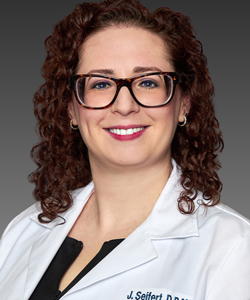Challenging My Own Misconceptions: Case Review

By Jennifer Seifert, DPM, D.ABFAS, FACFAS
Before I was involved as a case reviewer, I had a lot of criticisms regarding the ABFAS certification process. I thought the process to get certified was obscure and behind closed doors. After just one year of being on the other side, I can confidently say that this is not the case.
Prior to this experience, one of my biggest concerns was that the room was filled with older podiatrists who did not want to give out the credential. I thought they were looking for perfection, and every mistake in my documentation was an opportunity to prove them right. I have never been more wrong about something.
Another misconception I (and many others) had was the idea that reviewers had the ability to fail a candidate or fail a case entirely. This is probably the biggest misconception circulating. Every reviewer in the room remembers what it was like putting the work in and waiting to receive their board certification credential. No one wants to stand in the way of a qualified candidate.
The addition of the candidate’s rationale or ability to reflect on each case is also a welcome addition to the board certification process. This gives the candidate one last chance to acknowledge any shortcoming that may not be reflected in the documentation. While some candidates used this as an opportunity to justify some of their choices, others used it to reflect and show some personal growth. This is an important step in any surgeon’s analysis of their work, and I am glad this has been added.
One final takeaway I have as a newbie in the case review process is the overwhelming sense of community in this profession. Every surgeon in that room was there for one reason and one reason only: to give back and further the profession. I spent a lot of time interacting with surgeons from all over the country, in different phases of their career, and everyone was more than happy to share their experience and answer questions.
